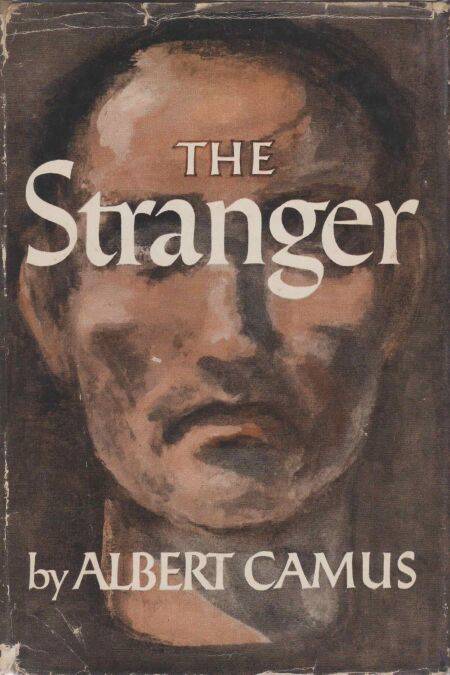
Bedankt voor het vertrouwen het afgelopen jaar! Om jou te bedanken bieden we GRATIS verzending (in België) aan op alles gedurende de hele maand januari.
- Afhalen na 1 uur in een winkel met voorraad
- In januari gratis thuislevering in België
- Ruim aanbod met 7 miljoen producten
Bedankt voor het vertrouwen het afgelopen jaar! Om jou te bedanken bieden we GRATIS verzending (in België) aan op alles gedurende de hele maand januari.
- Afhalen na 1 uur in een winkel met voorraad
- In januari gratis thuislevering in België
- Ruim aanbod met 7 miljoen producten
Zoeken
Omschrijving
"The Stranger" (French: "L'Étranger") is a novel by Albert Camus, published in 1942. It is a compelling and existential work that examines the absurdity of human existence and societal norms through the story of its protagonist, Meursault.
The novel is narrated by Meursault, a detached and emotionally indifferent Algerian Frenchman living in Algiers. Meursault's detached demeanor becomes evident when he displays little emotion at his mother's death, attends her funeral without mourning, and engages in seemingly amoral behavior. His detached outlook on life leads him to commit a senseless act of violence on a beach, which ultimately lands him in court.
Throughout the narrative, Camus explores themes of existentialism, absurdity, and the clash between individuality and societal expectations. Meursault's inability to conform to societal norms and his indifference to conventional morality make him an outsider, hence the title, "The Stranger."
The novel delves into the human condition, emphasizing the sense of alienation and the search for meaning in an indifferent and absurd world. Through Meursault's experiences and observations, Camus challenges conventional beliefs about morality, justice, and the nature of human existence.
"The Stranger" remains a thought-provoking and influential work in existential literature, known for its concise prose, philosophical depth, and exploration of the complexities of human consciousness and societal norms.
The novel is narrated by Meursault, a detached and emotionally indifferent Algerian Frenchman living in Algiers. Meursault's detached demeanor becomes evident when he displays little emotion at his mother's death, attends her funeral without mourning, and engages in seemingly amoral behavior. His detached outlook on life leads him to commit a senseless act of violence on a beach, which ultimately lands him in court.
Throughout the narrative, Camus explores themes of existentialism, absurdity, and the clash between individuality and societal expectations. Meursault's inability to conform to societal norms and his indifference to conventional morality make him an outsider, hence the title, "The Stranger."
The novel delves into the human condition, emphasizing the sense of alienation and the search for meaning in an indifferent and absurd world. Through Meursault's experiences and observations, Camus challenges conventional beliefs about morality, justice, and the nature of human existence.
"The Stranger" remains a thought-provoking and influential work in existential literature, known for its concise prose, philosophical depth, and exploration of the complexities of human consciousness and societal norms.
Specificaties
Betrokkenen
- Auteur(s):
- Uitgeverij:
Inhoud
- Taal:
- Engels
Eigenschappen
- Productcode (EAN):
- 9781068859656
- Verschijningsdatum:
- 20/07/2024
- Uitvoering:
- E-book
- Beveiligd met:
- Digital watermarking
- Formaat:
- ePub

Alleen bij Standaard Boekhandel
Beoordelingen
We publiceren alleen reviews die voldoen aan de voorwaarden voor reviews. Bekijk onze voorwaarden voor reviews.









